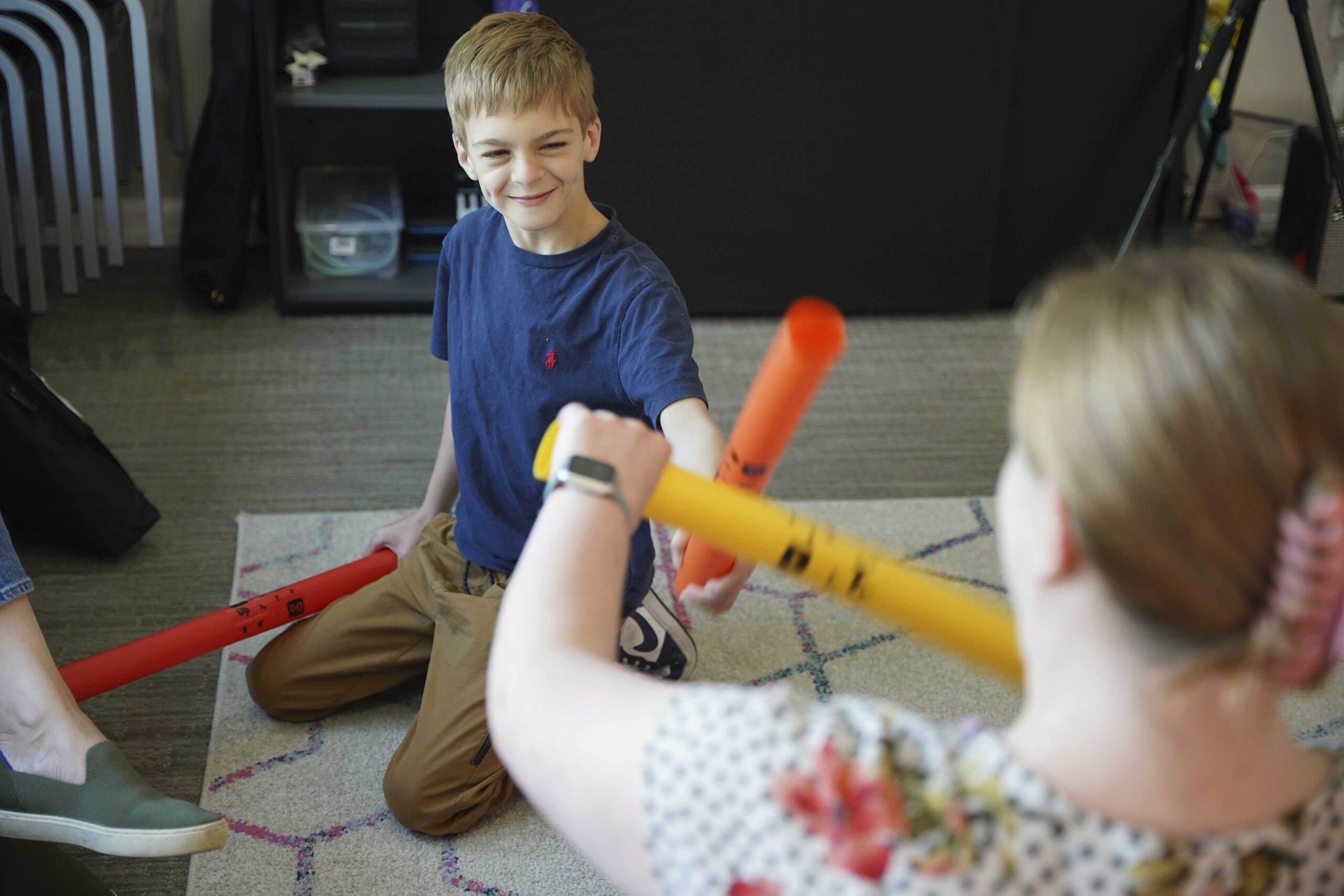Regulate Through Rhythm: Music for Regulation, Connection, and Social Skills
In a world that often feels overwhelming, especially for children navigating trauma or neurodivergence, music offers something rare and essential: safety, connection, and expression without needing words. At Harmony Music Therapy, we see every day how musical experiences become a lifeline—helping kids build emotional regulation, resilience, and social bonds in a way that feels natural, joyful, and deeply human.
Why Regulation Matters
Emotional and self-regulation—the ability to manage big feelings, adapt to change, and calm the body and mind—lays the foundation for learning, relationships, and everyday functioning. For children with sensory sensitivities, anxiety, ADHD, or trauma histories, this kind of regulation may not come easily. They may experience frequent dysregulation, meltdowns, or shutdowns, and need additional support to feel safe and in control.
That’s where music comes in.
Rhythm as Regulation
Rhythm is grounding. It mirrors the heartbeat, the breath, and the natural patterns of the body. For kids who feel “out of sync,” engaging in music—through drumming, movement, clapping games, or simply listening—can help re-align internal rhythms. Research shows that steady rhythm activates the brain’s regulatory centers, calming the nervous system and creating a sense of predictability and control.
In our sessions, we often begin with a steady drumbeat or a familiar song to co-regulate. This shared musical experience helps the child attune to the therapist, mirroring body language, breath, and tempo. Over time, this builds their capacity to stay grounded in the presence of another—a key step toward emotional safety and relational healing.
Music as a Safe Space for Expression
For children who struggle to name or understand their emotions, music becomes a powerful form of expression. Through songwriting, improvisation, or even just choosing songs that match their mood, kids learn to externalize their feelings in ways that feel safe and nonjudgmental.
One child we work with, who had a history of trauma, began to open up through improvised piano duets. At first chaotic and intense, the music gradually shifted as he began to explore softer dynamics and slower tempos. These changes weren’t just musical—they reflected his growing ability to manage big emotions and trust another person in the process.
Building Social Connection Through Musical Play
Co-regulation—where two people help each other stay calm and connected—is at the heart of early development and healing relationships. In music therapy, shared musical play fosters co-regulation and social reciprocity. Turn-taking, call-and-response, harmonizing, and joint movement build attunement and trust.
For neurodivergent kids who may struggle with verbal communication or reading social cues, music offers a way to connect without pressure. Through musical games, group drumming, or movement-based activities, they learn to anticipate, respond, and collaborate in a way that feels intuitive and enjoyable.
Fostering Resilience Through Joyful Engagement
Most importantly, music therapy nurtures joy—and joy builds resilience. In the face of challenges, being able to access positive emotional states through music strengthens a child’s sense of self, creativity, and hope. Over time, these small moments of success and connection add up, creating a more regulated and relationally rich foundation for life.
Final Thoughts
Whether it’s through a beat that calms a racing heart, a song that gives voice to a feeling, or a duet that builds trust, music offers more than entertainment—it offers healing. At Harmony Music Therapy, we believe every child deserves the chance to regulate through rhythm, express their inner world, and find connection through sound.
If you’d like to learn more about how music therapy can support emotional regulation and social development for your child or community, we’d love to connect with you.
Related Programs at Harmony Music Therapy:
-
Individual music therapy for emotional regulation and trauma recovery
-
Group sessions focused on social skills and co-regulation
-
Parent-child music classes to build connection and shared rhythms
-
Summer camps that blend music, movement, and fun
Let’s keep making music that heals. Contact us to learn about our programs today!
Want to learn more? Here’s a great research article on music therapy with trauma in children:
Parenting in the Face of Trauma: Music Therapy to Support Parent–Child Dyads Affected by War and Displacement

